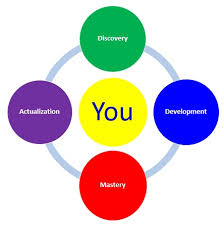Effective Strategies for Stress Reduction
Stress is a common experience in today’s fast-paced world, affecting our physical and mental well-being. It’s important to proactively manage stress to maintain a healthy lifestyle. Here are some effective strategies for reducing stress:
Mindfulness Meditation
Mindfulness meditation involves focusing on the present moment without judgment. This practice can help reduce stress by calming the mind and increasing self-awareness. Taking just a few minutes each day to practice mindfulness can have significant benefits for stress reduction.
Exercise Regularly
Physical activity is a great way to relieve stress and improve overall health. Exercise releases endorphins, which are natural mood lifters that can help reduce feelings of anxiety and stress. Whether it’s going for a walk, practicing yoga, or hitting the gym, find an exercise routine that works for you.
Deep Breathing Techniques
Deep breathing exercises can help calm the nervous system and reduce stress levels. Practice deep breathing by taking slow, deep breaths in through your nose and out through your mouth. This simple technique can be done anywhere and anytime you feel overwhelmed or anxious.
Time Management
Poor time management can lead to increased stress levels. Organize your tasks, set priorities, and create a schedule that allows time for work, relaxation, and social activities. By effectively managing your time, you can reduce feelings of being overwhelmed and stressed.
Connect with Others
Social support is essential for managing stress. Connecting with friends, family members, or support groups can provide emotional comfort and perspective during challenging times. Don’t hesitate to reach out to loved ones when you need support.
Incorporating these strategies into your daily routine can help you effectively manage stress and improve your overall well-being. Remember that it’s okay to seek professional help if you’re struggling with chronic stress or anxiety.
8 Benefits of Stress Reduction for a Healthier, Happier Life
- Improved overall health and well-being
- Enhanced mood and emotional balance
- Better sleep quality and restful nights
- Increased focus and concentration
- Boosted immune system function
- Reduced risk of chronic diseases linked to stress
- Improved relationships with others
- Enhanced ability to cope with challenges and setbacks
Challenges and Drawbacks of Stress Reduction Techniques
- Some stress reduction techniques may require consistent practice and discipline to see significant results.
- Finding the right stress reduction method that works for you may take time and experimentation.
- Certain stress reduction activities or therapies can be costly, especially if they involve professional guidance or specialized equipment.
- Not all stress reduction techniques are universally effective, and what works for one person may not work for another.
- In some cases, relying solely on stress reduction strategies without addressing underlying issues or triggers may provide only temporary relief.
- It can be challenging to maintain a regular routine of stress reduction practices when faced with busy schedules or unexpected life events.
Improved overall health and well-being
One significant benefit of stress reduction is the improvement in overall health and well-being. By effectively managing and reducing stress levels, individuals can experience a positive impact on their physical, mental, and emotional health. Lowering stress can lead to reduced inflammation in the body, improved immune function, better sleep quality, enhanced mood, and increased resilience to life’s challenges. This holistic approach to well-being not only promotes a healthier lifestyle but also contributes to a sense of balance, vitality, and overall happiness.
Enhanced mood and emotional balance
Reducing stress can lead to enhanced mood and emotional balance. When we effectively manage stress levels, our overall outlook on life improves, leading to a more positive and stable emotional state. By implementing stress reduction techniques such as mindfulness meditation, exercise, and deep breathing exercises, we can regulate our emotions better and experience increased feelings of happiness and contentment. This improved emotional balance allows us to navigate challenges with greater resilience and maintain a sense of well-being in our daily lives.
Better sleep quality and restful nights
One significant benefit of stress reduction is the improvement in sleep quality, leading to more restful nights. When we effectively manage stress levels, our minds are calmer, and our bodies are more relaxed, making it easier to fall asleep and stay asleep throughout the night. Quality sleep is essential for physical and mental well-being, as it allows our bodies to rest, recover, and recharge. By incorporating stress reduction techniques into our daily routine, we can experience the positive impact of better sleep quality, waking up feeling refreshed and ready to tackle the day ahead.
Increased focus and concentration
One significant benefit of stress reduction is the increased focus and concentration it brings. By managing stress levels effectively, individuals can clear their minds of distractions and improve their ability to concentrate on tasks at hand. Reduced stress allows for better mental clarity, enabling individuals to stay present and engaged in their work or activities. With improved focus and concentration, individuals can enhance their productivity, problem-solving skills, and overall performance in various aspects of their lives.
Boosted immune system function
Reducing stress can have a positive impact on boosting immune system function. Chronic stress has been linked to a weakened immune system, making individuals more susceptible to illnesses and infections. By managing stress levels through relaxation techniques, exercise, and healthy lifestyle habits, such as proper sleep and nutrition, the immune system can function more effectively. Lower stress levels help the body maintain a balanced immune response, enhancing its ability to fight off pathogens and maintain overall health and well-being.
Reduced risk of chronic diseases linked to stress
Reducing stress not only benefits our mental well-being but also plays a crucial role in lowering the risk of chronic diseases associated with high stress levels. Chronic stress has been linked to various health conditions such as heart disease, hypertension, diabetes, and autoimmune disorders. By actively managing and reducing stress through techniques like mindfulness meditation, exercise, and deep breathing, we can potentially decrease the likelihood of developing these serious health issues. Prioritizing stress reduction in our daily lives is a proactive step towards maintaining a healthier body and mind for the long term.
Improved relationships with others
Reducing stress can lead to improved relationships with others as it allows individuals to approach interactions with a greater sense of calm, patience, and understanding. When we are less stressed, we are better able to communicate effectively, listen attentively, and empathize with the feelings of those around us. By managing our stress levels, we create a positive environment for nurturing healthier and more fulfilling relationships with friends, family members, colleagues, and acquaintances.
Enhanced ability to cope with challenges and setbacks
Stress reduction can lead to an enhanced ability to cope with challenges and setbacks. By managing stress effectively, individuals can develop resilience and a more adaptive mindset when facing difficult situations. When stress levels are lowered, the mind is clearer, allowing for better problem-solving and decision-making skills. This improved coping ability enables individuals to navigate obstacles with a greater sense of calm and confidence, ultimately leading to better outcomes and a more positive outlook on life.
Some stress reduction techniques may require consistent practice and discipline to see significant results.
Some stress reduction techniques may require consistent practice and discipline to see significant results. It’s important to understand that managing stress is a process that often involves developing new habits and routines. While immediate relief can be experienced with certain techniques, long-term benefits typically come from regular practice and dedication. Consistency is key when it comes to effectively reducing stress levels and improving overall well-being. By committing to incorporating these techniques into your daily life, you can experience lasting positive changes in how you cope with stress.
Finding the right stress reduction method that works for you may take time and experimentation.
Finding the right stress reduction method that works for you may take time and experimentation. Each individual responds differently to various stress management techniques, and what works well for one person may not be as effective for another. It’s important to be patient and open-minded as you explore different methods to discover what resonates with you personally. Trying out a variety of strategies, such as mindfulness practices, physical activities, deep breathing exercises, or time management techniques, can help you identify the most suitable approach for reducing your stress levels effectively. Remember that the journey to finding the right stress reduction method is a process of self-discovery and self-care that requires time and dedication.
Certain stress reduction activities or therapies can be costly, especially if they involve professional guidance or specialized equipment.
Certain stress reduction activities or therapies can be costly, especially when they require professional guidance or specialized equipment. Seeking the help of a trained therapist, attending specialized workshops, or investing in equipment for activities like yoga or meditation can add up in terms of expenses. While these resources can be valuable for effectively managing stress, the financial burden they impose may limit access for individuals with budget constraints. It is important to consider alternative, more affordable stress reduction options that are accessible to a wider range of individuals.
Not all stress reduction techniques are universally effective, and what works for one person may not work for another.
It is important to recognize that not all stress reduction techniques are universally effective, and what works for one person may not work for another. Each individual responds differently to various strategies, and it may take some trial and error to find the most suitable approach for managing stress. While mindfulness meditation or deep breathing exercises may be beneficial for some, others might find relief through physical exercise or creative activities. It’s essential to explore different techniques and tailor them to your unique needs and preferences in order to effectively reduce stress and improve overall well-being.
In some cases, relying solely on stress reduction strategies without addressing underlying issues or triggers may provide only temporary relief.
In some cases, relying solely on stress reduction strategies without addressing underlying issues or triggers may provide only temporary relief. While techniques like mindfulness meditation, exercise, and deep breathing can help alleviate immediate stress symptoms, they may not address the root causes of stress. Without identifying and addressing the underlying issues that contribute to stress, individuals may find themselves in a cycle of temporary relief followed by recurring stress. It’s essential to explore the deeper sources of stress and work towards long-term solutions for sustainable well-being.
It can be challenging to maintain a regular routine of stress reduction practices when faced with busy schedules or unexpected life events.
Maintaining a regular routine of stress reduction practices can be a daunting task, especially when confronted with busy schedules or unforeseen life events. The demands of daily life, work responsibilities, family obligations, and unexpected challenges can easily disrupt our efforts to prioritize self-care and relaxation. Finding the time and energy to engage in stress reduction techniques such as meditation, exercise, or deep breathing becomes a challenge when faced with constant distractions and time constraints. Despite these obstacles, it is crucial to acknowledge the importance of managing stress effectively, even amidst the chaos of our busy lives.



